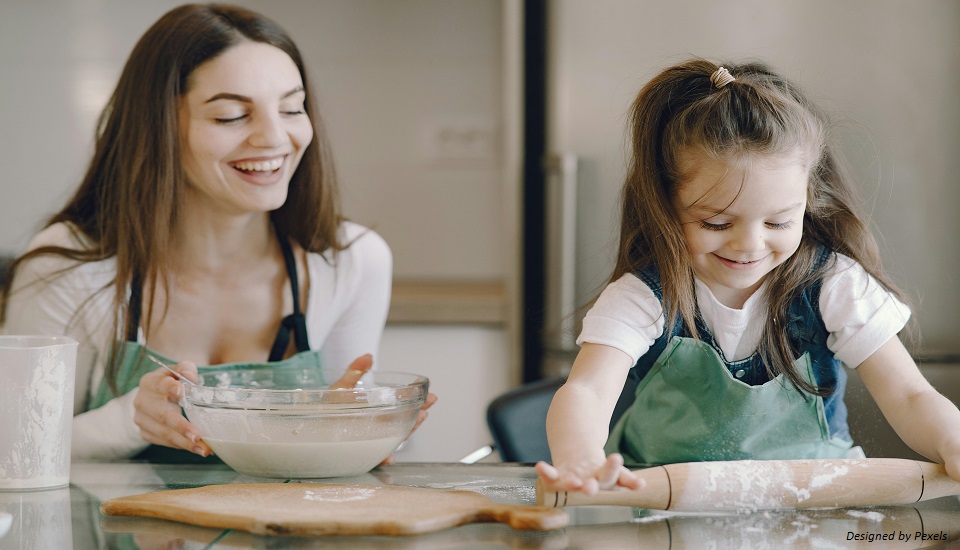5 Fun Ways to Help Your Child Learn Planning Skills
19th March 2025

Do you often see your child getting super excited about drawing but forgetting all the crayons? Or start a puzzle only to find pieces missing halfway through? These everyday moments show they are still struggling to plan ahead.
Here's something interesting- research reveals that planning skills predict success better than being 'book smart'! The reality is that many children, especially those with learning differences, find planning tough to master.
Don't worry! You have got options. Fun activities at home can build these skills naturally. And your child's teachers? They know how to communicate with parents of special education students helping your child to continue learning at home. And since you are here, let's get started with the basics.
How Play-Based Learning Builds Planning Skills?
Children absorb knowledge best when they are actively involved and having fun.
Think about it: During playtime, your little one makes choices and immediately sees what happens. Did their block tower fall? They will try a different approach next time! This natural trial-and-error helps their brain build those planning pathways. That is the beauty of play. There is no pressure! Your child can experiment freely without worrying about 'getting it wrong.' They will naturally start thinking ahead, solving problems, and adjusting their strategies.
5 Fun Activities That Teach Planning Skills
The word 'activity' brings a lot of pressure and confusion.
What kind of activities would help? Will my child enjoy the activity? Will the activity improve my child's planning abilities? You might come up with such questions. And that is completely normal. After all, you aim for the best for your child.
To make things easier for you, here is a list of activities from which you can take inspiration:
- Make a Treasure Hunt
This activity involves your child creating a simple treasure hunt around your home or yard. Ask your child to draw a simple map of your home. Help them write or draw clues that lead from one spot to another. Have them hide a small toy or treat at the end. Let family members follow the clues to find the treasure.
What do they learn? This activity teaches sequencing, space-related awareness, and point of view. Children must think about how others will interpret their clues and plan a logical progression from start to finish. They also practice creating clear directions and expecting potential confusion points.
- Kid's Cooking Night
In this one, your child helps plan and make a simple meal for the family.
You can let them pick a simple recipe like sandwiches or tacos. Write down the items you need to buy. Talk about what steps come first, second, and last. Give them jobs they can handle safely.
The benefits? Your child learns to read instructions carefully and understand how preparation steps impact the final result. They also practice prioritizing tasks and managing multiple elements- at the same time. You can make this activity more interesting! Create a special "chef's hat" for cooking nights. Take photos of successful dishes to create a family cookbook that documents their growing skills and independence in the kitchen.
- Make a Family Storybook
How about letting your child create a simple story with a beginning, middle, and end? Start with helping them think of the main character and a problem to solve. Ask questions like 'What happens first? Then what happens? How does it end?' Let them draw pictures for each part of the story. Bind the pages together to create a booklet.
According to parents who have completed special education training courses, storytelling is highly effective. It develops narrative planning, logical sequencing, and cause-and-effect thinking. Children must organize their thoughts coherently and create a structured flow of events. This leads directly to better planning in other areas, as they learn to visualize a process from start to finish before beginning.
- Grow a Small Garden
Let your child plant and take care of a few simple plants. Help them pick 2-3 easy-to-grow plants. Show them how to prepare a pot or small garden space. Make a simple chart for when to water the plants. Take pictures as the plants grow.
The fact is, gardening teaches long-term planning, patience, and consistent follow-through. Children develop an understanding of natural sequences and life cycles while learning to maintain a regular care schedule. The visible results of their planning efforts provide concrete feedback and motivation.
- Plan a Family Game Night
Now, to the best one- let your child organize an evening of games for the family. Ask them to pick 2-3 games everyone can play. Help them decide what snacks to have. Let them choose when to start and how long to play each game. Have them tell everyone about game night.
This event planning activity can build your child's decision-making skills, time management, and consideration of others' preferences. Children practice thinking about the arrangement of activity from multiple perspectives and predicting potential problems before they occur.
Bottom Line
Parents who have completed online special education certification, understand better that through enjoyable activities, children gain skills that help them for life. These skills are important for doing well in school, especially as assignments become harder in higher grades. Moreover, students who can break projects into smaller tasks and set realistic timelines feel less stressed and do better work. So, start small steps today for big successes tomorrow!
We believe education should be accessible for everyone. That’s why we don’t charge for our blogs. Find the right course that will help you in your career with us, contact us at 91-6292150868. You can mail us at act@asiancollegeofteachers.com
Written By : Ruchi Mehta

